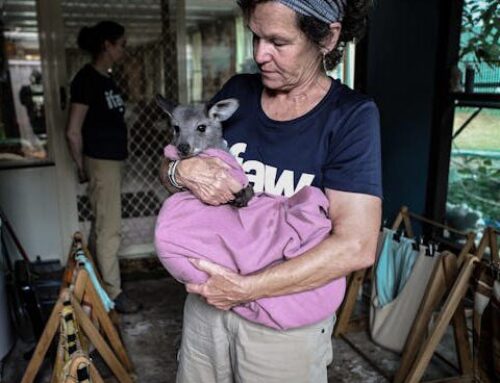We’re encouraged every fall to get our flu shot and getting vaccinated is more important than ever during this pandemic year. People 65 years and older are among those at high risk for flu complications; the stark fact is that this demographic accounts for more hospitalizations and deaths from flu and COVID-19, according to the Centers for Disease Control and Prevention. While the flu vaccine won’t protect you or a senior loved one against coronavirus, it has these other important benefits, notes the Centers for Medicare and Medicaid Services:
- A flu shot help keep you and your family healthy, thus helping reduce the strain on our healthcare system and keeping hospital beds and other medical resources available for people with coronavirus.
- With two dangerous viruses going around at once, it’s time for us to protect our communities by getting the vaccine we already have: the flu vaccine. The CDC recommends getting vaccinated in September or October, but a flu shot anytime during the flu season can help protect you.
- Flu vaccines have been shown to reduce the risk of flu illness, hospitalization, and death. The CDC reports there’s no evidence that a flu vaccination increases your risk of getting sick from a coronavirus, like the one that causes COVID-19.
- Flu vaccination is an important preventive tool for seniors who are managing chronic health conditions, like heart disease, COPD and diabetes. It has been associated with lower rates of health emergencies and reduced hospitalizations.
- Flu vaccination has been shown in several studies to reduce severity of illness in people who get vaccinated but still get sick. Among adults in the ICU with flu, vaccinated patients on average spent 4 fewer days in the hospital than those who were not vaccinated.
Why Are Seniors Are at a Higher Risk of Flu-Related Complications?
Did you know…
- Combined with pneumonia, influenza is one of the top ten leading causes of death in the United States.
- Up to 85% of seasonal flu-related deaths occur in adults ages 65 years and older.
- Up to 70% of all flu-related hospitalizations occur in senior citizens.
- Seniors who get the flu have an increased risk of having a heart attack or stroke, even weeks after they “recover.”
- The decline a senior experiences in his or her health and abilities may end up being permanent.
These statistics may be eye-opening for some. Aside from infants, adults 65 years and older are the most susceptible age group for developing flu-related complications. Getting the flu is a BIG DEAL for seniors; but why?
As we age, we experience a gradual deterioration of our immune system, a process known as immunosenescence. When your immune system is weakened, your body has a harder time fighting off diseases and infections. This creates a perfect environment for viruses and bacteria to wreak havoc. A weaker immune system not only increases the odds of getting the flu, but it also makes it more difficult for you to fight off the flu when you get it and increases the chances you will develop flu-related complications.
Aside from a biologically weaker immune system, many seniors also have pre-existing medical conditions. Many of the conditions weaken the immune system, which not only makes it even easier for them to be affected by it, but the flu actually worsens the conditions—a vicious cycle indeed.
80% of those hospitalized from the flu had pre-existing health problems.
86% of seniors have at least one chronic health conditions, while 68% of seniors have two or more chronic health conditions.
Some of the common long-term medical conditions that put people at risk of developing flu-related complications include the following.
Chronic Heart Disease. Did you know, about 30% of adults aged 65 and older have heart disease? Or that about half of the unexpected influenza deaths can be contributed to heart disease?
Getting the flu when you have heart disease (i.e., congenital heart disease, coronary disease, congestive heart failure,) is a huge risk because the flu can lead to a heart attack. Older adults with heart disease can significantly lower their risk of having a major cardiovascular event within one year by taking the initiative to get a flu shot.
Diabetes. Diabetes affects upwards of 20% of the older population. When diabetics get the flu or pneumonia, they increase their chances of going into a diabetic coma. The actress Mary Tyler Moore passed away after reportedly being hospitalized with pneumonia triggered by complications of type 1 diabetes.
Chronic Respiratory Conditions. Older adults with chronic respiratory conditions (i.e. asthma, chronic lung disease, COPD, etc.) are at a significant risk of developing flu-related complications. The flu is a respiratory infection. Respiratory infections are particularly dangerous for those with pre-existing respiratory conditions because the lungs can be inflamed, and the airways narrow.
Kidney Disease & Liver Disease. Kidney disease and liver disease can weaken the body’s immune system and cause transplants to be rejected.
Neurological Conditions, Cancer, and HIV. Many neurological chronic conditions such as Parkinson’s disease and Huntington’s disease can weaken your immune system, making it more difficult for you to fight off the flu. If a senior has cancer or HIV, these diseases also weaken the immune system. This can make it difficult for your body to fight off the flu.
Preventing the Flu in Older Adults
The most effective way for seniors to prevent the flu is to get an influenza vaccination, also known as a flu shot. The effectiveness of the flu shot varies from person to person. For some, it prevents the flu altogether, but for others, it is not so effective. The thing about getting a flu shot is that, if you do get the flu, your symptoms will likely be milder than if you hadn’t gotten the shot. This could make the difference between being bedridden for a few days to ending up in a hospital.
There were two flu shots created specifically for people 65 and older.
Higher dose flu shot. The higher dose vaccination is designed specifically to address the age-related decline in of the immune system. This higher dose contains 4 times the amount of antigen that the regular flu shot. This causes the body to produce more antibodies to defend against the flu virus.
Adjuvanted flu vaccine. The adjuvanted flu vaccination was created to provoke a stronger immune response.
The only downside to these vaccinations for seniors is they can result in milder side-effects than the regular shot. Still, feeling a little achy is a small cost to pay to prevent getting the full-blown flu.
More Ways to Prevent the Flu (and Protect Yourself from Exposure to COVID-19)
- Cover your mouth and nose with a mask when around others. The flu and coronavirus are similar in that they are spread by respiratory droplets made when infected people cough, sneeze or talk. Avoid close contact, if possible, maintaining at least 6 feet of distance (two arms’ length) from other people.
- Avoid crowded places. The flu and COVID-19 are highly contagious, so avoiding crowded places, especially during cold and flu season, is a great idea.
- Look, don’t touch. If you do find yourself in a public place, be sure to take basic precautions such as avoiding those who are sneezing or coughing and minimizing what you touch. It’s a good idea for you to carry hand sanitizer with you.
- Wash your hands, frequently. Washing your hands frequently is crucial when you are trying to avoid the flu and coronavirus.
Focus on Flu Prevention
A weakened immune system can make getting the flu a serious illness for older adults. Keep your senior loved ones safe by educating them and making sure they are proactive about flu prevention.
“Why Should Seniors Focus on Flu Prevention This Season,” by Ashley Levine and updated by Michelle Flores, Amada Blog contributors. Photo by Kelly Sikkema on Unsplash.



